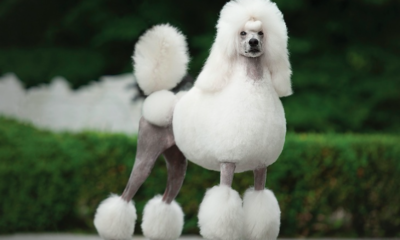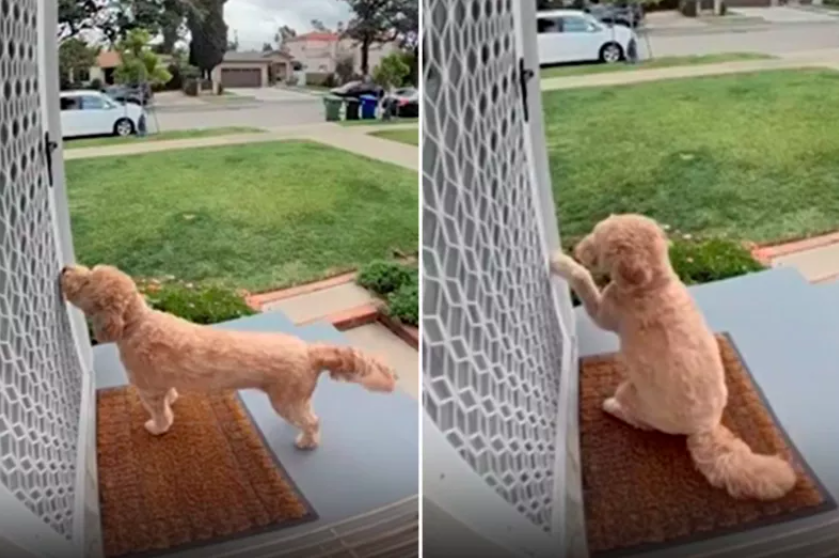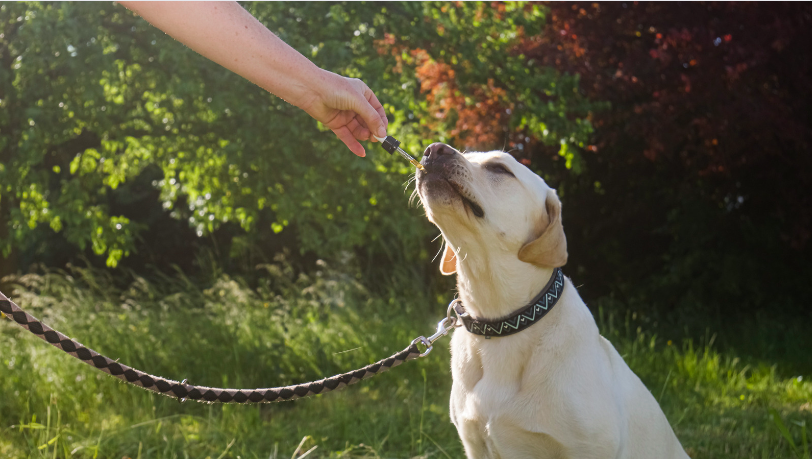Pet Care
What You Need To Know About The Life And Features Of The Neapolitan Mastiff
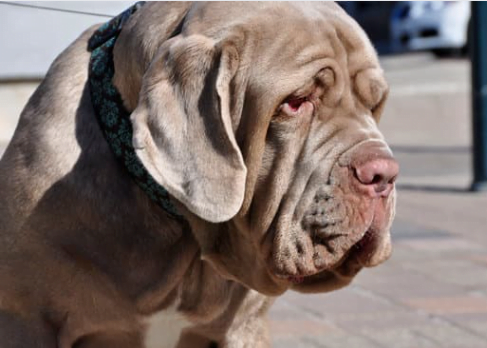
What You Need To Know About The Life And Features Of The Neapolitan Mastiff
If you’re considering adopting a Neapolitan Mastiff, there are many important things to know about this breed.
Learn about its origin and history, temperament, and appearance. You’ll also learn about training and exercise. This article will help you make the right decision.
Origin & History
The Neapolitan Mastiff has a long history in Italy.

It was brought to the country by Alexander the Great around 300 BC. The Roman Empire also used the dog as a war dog. The breed’s large size and heavy coat helped it survive in battle.
The dog also was a good family pet. While it is a related breed of the Cane Corso, the Neapolitan Mastiff is unique. The breed was first recognized in 1996 by the United Kennel Club, although the American Kennel Club took longer.
A club was formed to protect and promote the breed. The Neopolitan Mastiff was originally used by the ancient Italians as a guard dog.
Its large size and rugged appearance are characteristic of a large dog with a fierce personality. The breed was also known as “the big dog for little men.”
Temperament & Behavior
Neapolitan Mastiffs are known for their territorial nature and overprotective nature.

Luckily, this trait can be reduced with early socialization. Nevertheless, you should never leave your Mastino alone for long periods of time.
Rather, you should place a crate in the house and give your pet a favorite toy to play with. For shorter periods, you can leave the dog alone with a puzzle toy.
Temperament is more prone to change as the dog gets older, but it can be molded during training.
While both male and female Neapolitan Mastiffs are docile and sociable, males tend to be more dominant and aggressive than females.
If you choose to get a female Mastiff, you should neuter it. Females can develop some health problems in adulthood, so neutering is a good idea.
The Neapolitan Mastiff is a loyal companion who loves humans. However, it can be a bit aggressive and may attack strangers or children.
It is important to socialize your pet early to ensure that it will be safe around children and other animals.
Appearance
The Neapolitan Mastiff is a large breed of Italian dog. It is descended from the traditional guard dogs of central Italy.

It was first recognized by the Ente Nazionale della Cinofilia Italiana in 1949, and in 1956 was accepted by the Fédération Cynologique Internationale.
Appearance: The Neapolitan Mastiff is large and heavy with a massive head. The skull is more than twice as long as the muzzle and is well-proportioned and square in shape.
The large, powerful jaws are broad but don’t taper. The eyes are large and set far apart. The ears are small.
The Neapolitan Mastiff is a large breed of dog with a head that is large and wrinkled. The ears are triangular and are often cropped short.
The body is long and sturdy, with a muscular chest and a broad, deep face. Neapolitan Mastiffs are moderate shedders and can come in a variety of colors.
Training & Exercise
The Neapolitan Mastiff is a sturdy and imposing guard dog that can be an excellent family pet.

Although they are a bit headstrong and may not be appropriate for young children, these dogs can make wonderful pets. They need to be trained and socialized from an early age to ensure they don’t become bored or aggressive.
Unlike other large dogs, this breed is not a danger to small children, but it is best to supervise it while it’s young, as it can become rambunctious.
The first training and exercise session for your Neapolitan Mastiff should be gentle and gradual. Always use positive training methods; never use negative methods, such as prong collars, electric shocks, or sprays.
Remember, nothing comes without a price, and you don’t want to cause your dog unnecessary pain and frustration. Instead, use tricks and positive reinforcement to train your dog in the ways that you want.
The first step is to socialize with your new pup and train him to recognize you as the dominant pack leader. Neapolitan Mastiffs can be quite intimidating when they first meet new people, so it is important to socialize them early.
For instance, they should be socialized in public places and given a structured schedule. The second step is to teach your dog how to respect you and the responsibility of ownership.
Grooming & Coat
Neapolitan Mastiffs are loving family dogs. They are also a calm and patient companion.

Due to their size, they are not recommended for households with children younger than four years of age. You should also be aware that Neapolitan Mastiffs can be protective of their pack.
Because of this, they must be well-socialized from an early age. Grooming & Coat of Neopolitan Mastiffs is not too difficult for this breed, as they shed very little and have a short, wavy coat.
However, you should brush your dog’s coat every few weeks to keep it looking beautiful and healthy. You should also check its ears and nails for signs of infection.
This dog breed is also known to drool, so it is important to keep a rag handy to wipe off the dog’s face. The coat of a Neapolitan Mastiff is usually short and isn’t resistant to extreme weather.
Because of this, you may need to protect your pet from hot weather by using dog sunscreen. In addition, you may want to keep your dog indoors during the warmer months of the year.
Diet & Nutrition
A Neapolitan Mastiff’s diet is very important for its health and well-being.

You must avoid feeding it too much of some types of food. Certain foods are toxic to dogs. The American Kennel Club recommends a diet higher in fat and lower in protein.
But if you are worried about your dog’s diet, it is best to discuss it with your veterinarian.
As a massive dog, the Neapolitan Mastiff should be fed with dry food that contains 30% protein and 9% fat. Calcium and phosphorus should also be present in their diet.
It is recommended to feed your dog with a portion of high-quality dry food made from real chicken. This food is rich in omega-6 fatty acids and antioxidants.
It is also important to remember that the adult male of the breed weighs about 150 pounds. As a result, they shouldn’t be fed puppy food.
Ideally, the food contains at least 25-30% protein and 15% fat. Feed your dog at least twice a day, and add carbohydrates to the diet to keep it full between meals.
Health
If you are considering purchasing a Neapolitan Mastiff, you should know that the breed is prone to some health issues.

These include orthopedic problems, elbow dysplasia, eye problems, progressive retinal atrophy, and cardiovascular disease. Additionally, this breed is susceptible to cancer.
However, most of the illnesses that can plague this breed are easily treatable, and a proper preventative care program can help keep these pets healthy for many years to come.
A Neapolitan Mastiff is not an ideal jogging companion, but a daily walk is good for this breed. It is sensitive to heat and humidity, so make sure to provide plenty of fresh water and a cool area for it to rest.
Additionally, you should limit your Neapolitan Mastiff’s access to swimming pools and spas. Another common problem for this breed is obesity.
It is important to monitor your dog’s weight by feeding it twice a day. Avoid giving it food that is too soft or high in fillers. Instead, choose a high-quality diet with wholesome, natural ingredients.
Your vet can recommend a diet plan that suits your Neapolitan Mastiff’s lifestyle and help you determine proper portion sizes.
Socialization
Among the best ways to socialize a Neapolitan Mastiff is to take it to dog parks and let it play with other dogs.

Although it is considered a giant breed, the Neapolitan Mastiff is not as aggressive as some other breeds. It requires patience and a firm hand during training but will make an excellent pet companion.
Early socialization of a Neapolitan Mastiff is very important to prevent the dog from becoming fearful and suspicious of strangers.
Neapolitan Mastiffs are usually raised in the home by breeders, who expose them to a variety of people and household sights. However, the socialization of a Neapolitan needs to continue throughout the dog’s life.
This means that owners should consider enrolling their pet in a puppy kindergarten class, taking it to dog parks, and taking it to stores and businesses.
The Neapolitan Mastiff is a loving, affectionate dog that likes to spend time with families. While they are playful and friendly, they can be very protective.
Early socialization is essential so that the puppy can get used to being around children and other pets. Although Neapolitan Mastiffs are friendly and loving with other dogs, they can be territorial and aggressive with strangers.
We appreciate you for taking the time to read!
Finally, we hope you found this article interesting? And what do you think about ”What You Need To Know About The Life And Features Of The Neapolitan Mastiff!?”
Please you should feel free to share or inform your friends about this article and this site, thanks!
And let us know if you observe something that isn’t quite right.
Pet Care
Dog Makes New Feline Friend on Walk, Internet Insists It’s His ‘Cat Now’
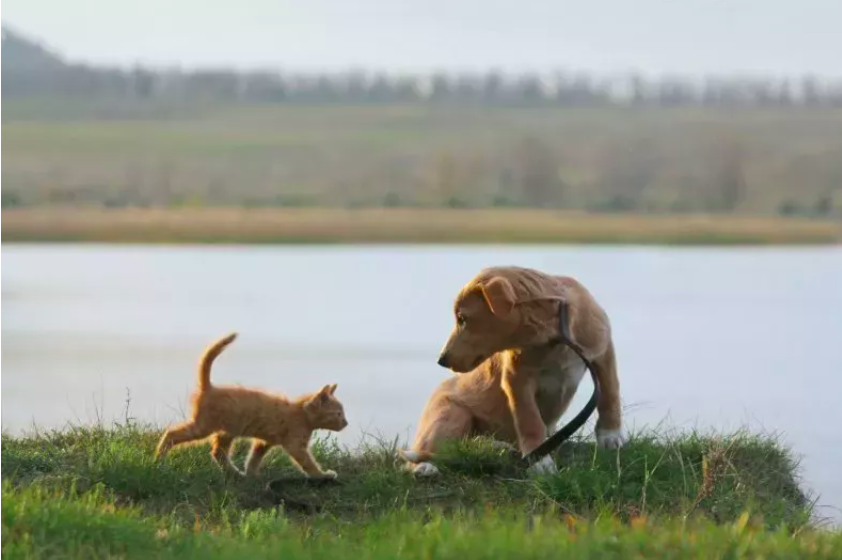
Dog Makes New Feline Friend on Walk, Internet Insists It’s His ‘Cat Now’
In a heartwarming viral TikTok video, Larry, a black Labrador retriever/golden retriever mix, formed an unexpected bond with an orange tabby cat during a routine walk. Larry’s newfound feline friend has since captured the hearts of internet users, inspiring conversations about pet friendships and sparking joy across social media. Let’s dive into this delightful story, explore the dynamics of cat-dog relationships, and learn how to introduce pets to one another safely.
Larry’s Instant Connection with a Cat
An Unlikely Friendship Blooms
While passing a cat café on their walk, Larry noticed an orange tabby cat curiously following him from behind a window. Fascinated by the feline’s antics, Larry refused to leave the café without his new friend. The viral TikTok clip, shared by @larry.the.labmix, humorously captioned, “Seriously though, do I have a cat now?” showcased Larry’s insistence on staying near his newfound companion.
From Viral Video to a New Family Member
The video melted hearts online, prompting Larry’s owner, Lexi Zia from Portland, Oregon, to adopt the tabby cat, now named Ruth. With the addition of Ruth, Zia’s household grew to five pets, including two dogs and two rescued pigeons.
“Larry was over the moon when we brought Ruth home,” Zia shared. “He’s doing his best to be calm and give her space, but he’s excited for the day they can play together.”
The Dynamics of a Multispecies Household
Larry’s Role as a Gentle Giant
As a trained service dog, Larry is naturally gentle and composed. His careful approach to Ruth reflects his understanding of her initial hesitance. Despite his enthusiasm, Larry patiently waits for Ruth to grow comfortable in her new environment.
The Other Pets in the Mix
Zia’s other pets, including Prune the pug and two pigeons, Bea and Bertie, are also adjusting to Ruth’s presence. While Ruth shows interest in the pigeons, her interactions remain harmless, much to Zia’s surprise. “It’s incredible to see how well they’re all adapting,” Zia remarked.
Cats and Dogs: A Natural Rivalry or Best Friends?
Breaking the Stereotype
Historically depicted as rivals, cats and dogs are often considered unlikely companions. However, studies suggest that these two species can coexist peacefully and even form close bonds. A 2020 study published in PLOS ONE found that 64% of households with both cats and dogs reported positive interactions, including playful behavior and mutual affection.
Tips for Introducing Cats and Dogs
If you’re considering adopting both cats and dogs, follow these tips to ensure a smooth transition:
- Start with separate spaces: Give each pet a safe area to retreat to during the introduction phase.
- Use supervised interactions: Gradually expose them to each other while ensuring safety and minimizing stress.
- Reinforce positive behavior: Reward calm and friendly interactions to build trust between your pets.
- Monitor body language: Look for signs of stress or aggression, and address them immediately.
Larry and Ruth’s Journey of Friendship
Adjusting to Life Together
Since Ruth’s adoption, she has been exploring her new home and slowly warming up to her canine sibling. Larry, ever the gentleman, gives her space and waits for her to initiate contact. Zia is optimistic that their bond will deepen over time, just as it has with other pets in the household.
Internet’s Reaction to Larry and Ruth
The TikTok video featuring Larry and Ruth has amassed over 3.9 million views and 606,000 likes. Comments poured in, with users humorously insisting that the cat now belongs to Larry.
- “Most definitely means that he is your cat,” wrote one commenter.
- “It’s illegal to leave the cat…” joked another.
The overwhelming positivity reflects the universal appeal of unexpected friendships.
@larry.the.labmix Seriously though, do I have a cat now? 🐈 ****** Cat and dog introduction cat and dog friendship dog meeting cat dogs meeting cats cats and dogs first meeting techniques #creatorsearchinsights #catsoftiktok #catanddog #dogsoftiktok #cutepetsoftiktok
Science Behind Cat-Dog Friendships
Why Cats and Dogs Can Get Along
Despite their differences in communication styles, cats and dogs can coexist and even thrive together. Dogs often exhibit playful, social behavior, while cats prefer independence. Over time, these traits can complement each other, leading to harmonious relationships.
Benefits of Multispecies Homes
Having both cats and dogs in a household offers unique benefits, including:
- Increased mental stimulation for both pets
- Opportunities for playful exercise
- Strengthened bonds between owners and pets
Final Thoughts
Larry and Ruth’s story is a testament to the unexpected joys of pet companionship. Their budding friendship highlights the importance of patience, understanding, and love when integrating pets into a household. As Larry continues to adjust to his role as Ruth’s big brother, their journey serves as a heartwarming reminder of the power of connection—even between species.
Frequently Asked Questions (FAQs)
Can cats and dogs be friends?
Yes, cats and dogs can form close bonds. Proper introductions, patience, and a safe environment are key to fostering a positive relationship.
How do I introduce a new cat to my dog?
Begin with separate spaces, allow gradual interactions under supervision, and reward calm behavior. Ensure both pets feel safe and secure.
Why are some dogs gentle with cats?
Dogs with calm temperaments or prior training are often more adaptable to living with cats. Larry’s training as a service dog likely contributed to his gentle behavior.
What should I do if my pets don’t get along?
If tension persists, consult a veterinarian or animal behaviorist for tailored advice. Sometimes, gradual reintroductions are necessary.
How can I tell if my pets are comfortable together?
Look for positive signs like playful behavior, relaxed body language, and mutual curiosity. Avoid forcing interactions if either pet seems stressed.
We appreciate you for taking the time to read this article!
Finally, we hope you found this article interesting? And what do you think about ”Dog Makes New Feline Friend on Walk, Internet Insists It’s His ‘Cat Now’!?”
Please feel free to share or inform your friends about this article and this site, thanks!
And let us know if you observe something that isn’t quite right.
References: Original Source: Newsweek – Dog Makes New Feline Friend
Pet Care
Dog Owner Worries All Week Over Fireworks, Can’t Believe His Reaction
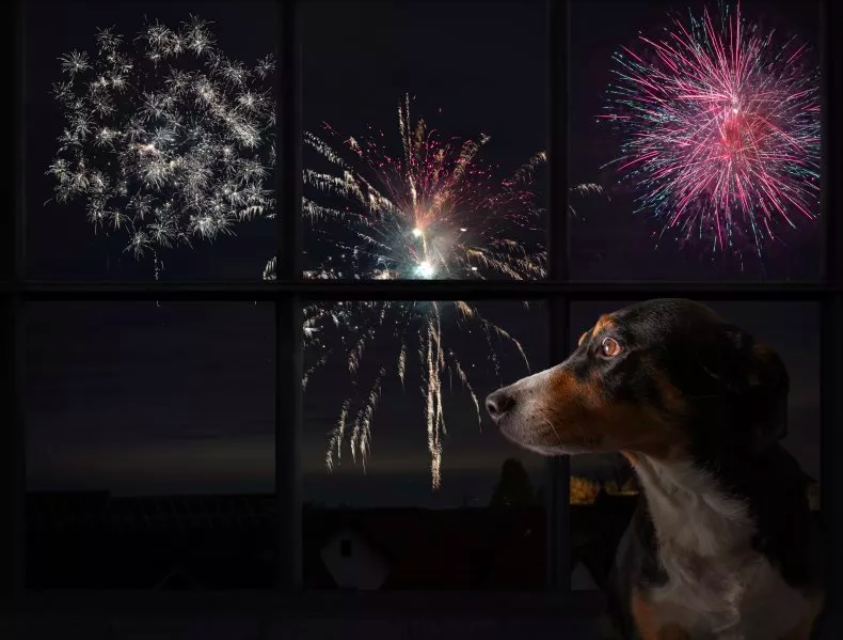
Dog Owner Worries All Week Over Fireworks, Can’t Believe His Reaction
Fireworks can be a source of great stress and anxiety for many pets, but one French Bulldog’s unexpected reaction during a firework display has left his owner—and the internet—laughing. The video of the dog’s unbothered demeanor has gone viral, amassing hundreds of thousands of views on TikTok. While many dogs are known to cower or bark at loud explosions, this three-year-old French Bulldog, Tanki, couldn’t be more relaxed. Let’s take a closer look at the hilarious and unexpected way Tanki handled the Bonfire Night fireworks, and why his calm reaction might be a breed-specific trait.
The Unexpected Hero of Bonfire Night: Tanki the French Bulldog
French Bulldogs are known for their unique personalities, and Tanki, the star of this viral video, has certainly lived up to the reputation. Milly Powell, Tanki’s owner, shared a video on TikTok of her dog standing serenely in their garden while fireworks erupted in the background. Rather than running for cover or displaying signs of distress, Tanki looked completely unfazed. This video quickly became a hit, with over 942,000 views, as viewers found it both surprising and hilarious that Tanki seemed to enjoy the loud, colorful lights in the sky.
The timing couldn’t have been better, as the video was shared on November 3, just ahead of Guy Fawkes Night in the UK. For many pet owners, this annual event is a source of anxiety, as fireworks are a central part of the celebration. However, Tanki’s reaction left Milly Powell feeling both relieved and amused. She had been worried about how her dog would handle the night’s festivities, but instead, she found that Tanki “quite enjoys the sparkly loud lights.”
Why Are Pets So Sensitive to Fireworks?
For pet owners, the distress fireworks cause their animals is well-known. Dogs, in particular, have more sensitive hearing than humans, which makes the loud bangs and shrill sounds of fireworks overwhelming for them. In fact, it’s common for pets to experience fear, anxiety, and confusion when faced with fireworks. Many dogs will seek refuge under furniture, bark incessantly, or even attempt to flee the source of noise.
The unpredictable nature of fireworks—starting and stopping without warning—adds to the stress. Pets are often unable to understand where the sounds are coming from, which can lead to panic. This is why experts recommend keeping dogs indoors and in a safe, quiet area during firework displays.
Tanki’s Unlikely Calmness: Is It Just a French Bulldog Thing?
The calm reaction of Tanki, the French Bulldog, has sparked numerous comments from viewers. Many pet owners have noted that their dogs, especially French Bulldogs, seem to have a different approach to stressful situations. Some viewers humorously suggested that French Bulldogs may be “deaf to anything other than the opening of a crisp packet.” Others joked that “Frenchies are crackheads that aren’t phased by anything,” referring to the breed’s notoriously stubborn yet easygoing temperament.
Tanki’s calmness during the fireworks is not entirely unexpected for the breed. French Bulldogs are known for their laid-back nature, and they often don’t react to stimuli in the same way as more excitable breeds. Unlike some dogs who become agitated by loud noises, French Bulldogs tend to be relaxed, even in situations that would typically cause stress.
Tanki’s Viral Moment: The Power of TikTok
Tanki’s reaction to the fireworks has resonated with many pet owners, which is why the video has gone viral. In addition to the 942,000 views, the video has garnered over 76,000 likes and nearly 2,000 comments. The comments are filled with amusement and surprise, with many viewers relating to the dog’s calmness or sharing their own experiences with similarly unphased pets.
Milly Powell’s post is a great example of how TikTok has become a platform where viral pet videos can capture hearts and spark conversations. Tanki’s reaction not only surprised his owner but also brought joy to thousands of people who could relate to the situation. Many commented on their own pets’ reactions to fireworks, with one user sharing that their pug acted in the same way, indifferent to the loud noise but very sensitive to the sound of a cheese packet being opened.
@millyrosepowell ive been worried about tonight all week, turns out he quite enjoys the ✨sparkly loud lights ✨ #frenchbulldog #frenchiesoftiktok #fyp #frenchie
The Importance of Keeping Pets Safe During Fireworks
While Tanki’s nonchalant attitude is a unique and funny story, it’s essential to remember that not all dogs react the same way to fireworks. For many pets, fireworks can be a stressful and traumatic experience. Pet owners should take precautions to ensure their animals are safe and comfortable during events like Bonfire Night.
Tips for Pet Owners During Fireworks:
- Keep Pets Indoors: If fireworks are being set off in your area, make sure your pets are kept inside in a quiet, secure space where they can feel safe.
- Provide a Safe Space: Create a calming environment with soft bedding, familiar toys, and perhaps a piece of clothing that smells like you. This can help comfort your pet during stressful events.
- Avoid Restraining Them: It may be tempting to hold or restrain your dog to prevent them from running away, but this can increase their anxiety. Instead, allow them to find their own safe space.
- Calming Products: Consider using calming products such as pheromone diffusers or anxiety wraps designed to help pets feel more at ease.
- Stay Calm Yourself: Animals can sense their owners’ emotions, so if you remain calm, your pet is more likely to feel secure.
Conclusion: A Surprising Fireworks Reaction from Tanki the French Bulldog
Tanki’s viral moment serves as a reminder that not all dogs are alike when it comes to their reactions to fireworks. While many pets experience fear and anxiety, some, like Tanki, remain calm and unfazed. Tanki’s story also highlights the importance of understanding your pet’s personality and providing the right care to help them feel safe during stressful events. Whether your dog is a fireworks lover or a fearful one, every pet deserves the comfort and care they need during this loud and colorful season.
FAQs About Dogs and Fireworks:
Why are some dogs not afraid of fireworks?
Some dogs, like Tanki the French Bulldog, are simply more laid-back and less sensitive to loud noises. Certain breeds, like French Bulldogs, are known for their calm and relaxed nature.
What should I do if my dog is scared of fireworks?
If your dog is frightened by fireworks, make sure they are kept indoors in a safe space away from the noise. Create a calming environment and consider using calming products like pheromone sprays or anxiety wraps.
Can fireworks harm my dog?
While fireworks themselves are unlikely to physically harm a dog, the stress and anxiety they cause can lead to behavioral issues or, in extreme cases, injuries if a dog tries to escape or hide.
How can I tell if my dog is scared of fireworks?
Signs of fear in dogs include shaking, excessive barking, whining, hiding, and pacing. If you notice these behaviors, it’s best to keep your dog indoors and create a quiet, secure space for them.
Should I comfort my dog during fireworks?
It’s important to comfort your dog if they are anxious, but avoid reinforcing fearful behavior. Offer reassurance without overdoing it, as this can sometimes exacerbate the fear.
We appreciate you for taking the time to read this article!
Finally, we hope you found this article interesting? And what do you think about ”Dog Owner Worries All Week Over Fireworks, Can’t Believe His Reaction!?”
Please feel free to share or inform your friends about this article and this site, thanks!
And let us know if you observe something that isn’t quite right.
For more updates on viral pet stories and expert pet advice, visit Newsweek.
Pet Care
A Dog’s Relentless Refusal to Give Up His Plane Seat Goes Viral

A Dog’s Relentless Refusal to Give Up His Plane Seat Goes Viral
In an amusing turn of events, a video capturing a dog’s determination not to relinquish its seat on a plane has taken the internet by storm. The TikTok clip, which quickly gained viral attention, shows the adorable pooch displaying human-like stubbornness as it refused to vacate its spot on the plane. With its unwavering stance and heart-melting expressions, this canine has become an internet sensation, sparking a conversation about pets and air travel.
The Viral Video: A Dog’s Determination
Flying with pets can often be a challenging experience for both the pet owners and their furry companions. In this particular instance, a dog showcased an unexpected level of resolve that resonated with viewers across the globe. The TikTok video, uploaded by the dog’s owner, captures the moment the dog is asked to move from its seat. Instead of complying, the dog remains steadfast, almost as if to say, “This is my seat, and I’m not giving it up.”
Humanizing the Canine Experience
What makes this story truly captivating is the way the dog’s behavior mirrors that of humans. Just like a stubborn passenger who refuses to give up their preferred seat, this dog exhibited a similar reaction. The dog’s actions struck a chord with people, who saw a reflection of their own travel experiences in this furry traveler. It’s not just about the dog refusing to move—it’s the way it did so, with a combination of determination and endearing charm.
The Impact of Viral Moments
The viral nature of this video highlights the power of social media in turning everyday moments into global phenomena. As the video circulated, it garnered millions of views and thousands of comments, with people sharing their own stories of traveling with pets. The relatability of the situation, combined with the dog’s adorable demeanor, made it an instant hit.
@hit_isacu Very demure of Blacky😂😂 #humortiktok #humorlatino #airplane #dogs #dogsoftiktok #adoptdontshop #rescuedog #funnyvideos #mexico #panama
Airline Policies and Traveling with Pets
This incident also brought attention to the broader topic of airline policies regarding pets. While many airlines allow pets to travel in the cabin, there are specific rules and guidelines that must be followed. The video sparked discussions about the challenges of flying with pets and the importance of ensuring their comfort during the journey.
The Psychology Behind the Refusal
Why did the dog refuse to give up its seat? While we can only speculate, there could be several reasons for its behavior. Dogs, like humans, can form attachments to specific spots, especially in unfamiliar environments like a plane. The seat may have provided the dog with a sense of security and comfort, making it reluctant to move. Additionally, dogs are highly intuitive and can pick up on their owners’ emotions. If the owner was anxious or stressed, the dog may have mirrored those feelings, leading to its stubbornness.
Lessons from a Determined Dog
There are several takeaways from this viral moment that go beyond just entertainment. Firstly, it serves as a reminder of the importance of considering pets’ needs and emotions when traveling. Ensuring that they feel safe and comfortable can make the journey smoother for both the pet and the owner. Secondly, it highlights the unpredictable nature of pets—just when you think you know them, they surprise you with their behavior.
The Internet’s Reaction
The internet’s reaction to the video was overwhelmingly positive, with many users praising the dog for standing its ground. Comments ranged from humorous takes on the situation to heartfelt stories of other pets displaying similar behavior. Some users even joked that the dog should be given frequent flyer miles for its determination.
Pet Travel Tips for Future Flights
For those planning to travel with their pets, this viral incident offers a few key lessons:
- Preparation is Key: Ensure that your pet is familiar with the travel carrier or seat they will be occupying.
- Comfort Matters: Bring along items that provide comfort, such as a favorite blanket or toy.
- Stay Calm: Pets can sense their owner’s emotions, so staying calm can help them feel more at ease.
- Understand Airline Policies: Before traveling, review the airline’s pet policies to avoid any surprises.
- Patience is Essential: Traveling with pets requires extra patience, as they may not always behave as expected.
Final Thoughts
This dog’s refusal to give up its seat on a plane is a delightful reminder of the unique personalities that pets bring into our lives. While the video is entertaining, it also underscores the importance of considering the comfort and well-being of our furry companions when traveling. Whether you’re flying with a determined dog or a laid-back cat, ensuring that they feel safe and secure can make all the difference in your travel experience.
Frequently Asked Questions (FAQs)
Why did the dog refuse to give up its seat on the plane?
The dog likely felt a sense of comfort and security in the seat, making it reluctant to move. Dogs can become attached to specific spots, especially in unfamiliar environments like a plane.
Are there specific airline policies for traveling with pets?
Yes, most airlines have policies regarding pet travel, including guidelines for pet carriers, seat assignments, and behavior during the flight. It’s essential to review these policies before flying with your pet.
How can I make my pet more comfortable during air travel?
To ensure your pet’s comfort, bring along familiar items such as a favorite blanket or toy, and make sure they are familiar with their travel carrier. Staying calm and reassuring your pet can also help ease their anxiety.
What should I do if my pet becomes stubborn or anxious during a flight?
If your pet becomes stubborn or anxious, try to remain calm and offer comfort. You can also try distracting them with treats or toys. In extreme cases, consult with the airline staff for assistance.
How can I prepare for future flights with my pet?
Preparation is key when flying with pets. Familiarize your pet with their travel carrier, review the airline’s pet policies, and pack items that will help keep them calm and comfortable during the flight.
We appreciate you for taking the time to read this article!
Finally, we hope you found this article interesting? And what do you think about ”A Dog’s Relentless Refusal to Give Up His Plane Seat Goes Viral!?”
Please feel free to share or inform your friends about this article and this site, thanks!
And let us know if you observe something that isn’t quite right.
Newsweek Article: Dog Plane Refusing to Give Seat Viral TikTok
-

 Pet Care2 years ago
Pet Care2 years agoThe Best Dog Collars For 2022
-

 Dogs2 years ago
Dogs2 years agoBichon Frise: The Happy, Playful, and Cuddly Companion
-

 Trending Pet Stories1 year ago
Trending Pet Stories1 year ago2023 ‘World’s Ugliest Dog’ Winner: Scooter’s Tale of Resilience
-

 Animals3 years ago
Animals3 years agoAre There Animals Having Down Syndrome?
-

 Pets2 years ago
Pets2 years agoThe Fascinating World Of The Red Chameleon
-

 Dogs3 years ago
Dogs3 years agoTop 10 Most Popular Dog Breeds According To AKC.
-
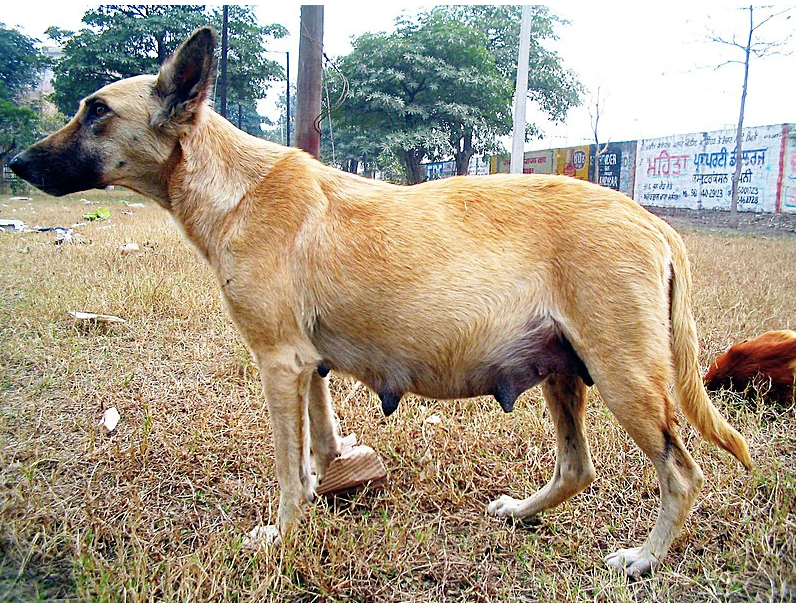
 Dogs2 years ago
Dogs2 years agoDogs 5 Weeks Pregnant: A Comprehensive Guide To Canine Pregnancy
-

 Dogs3 years ago
Dogs3 years ago21 Dog Breeds That Resemble Bears Or Teddy Bears!


